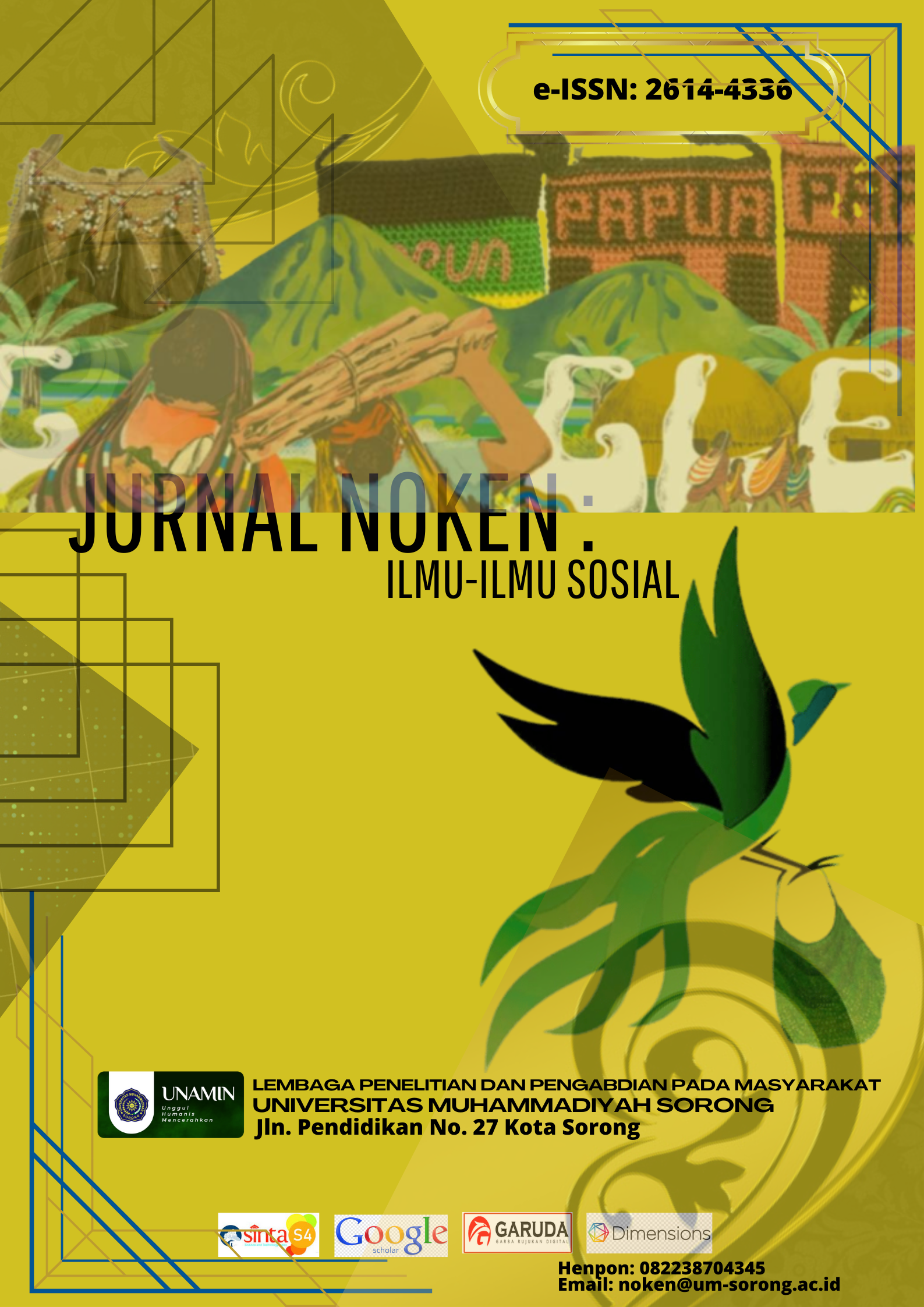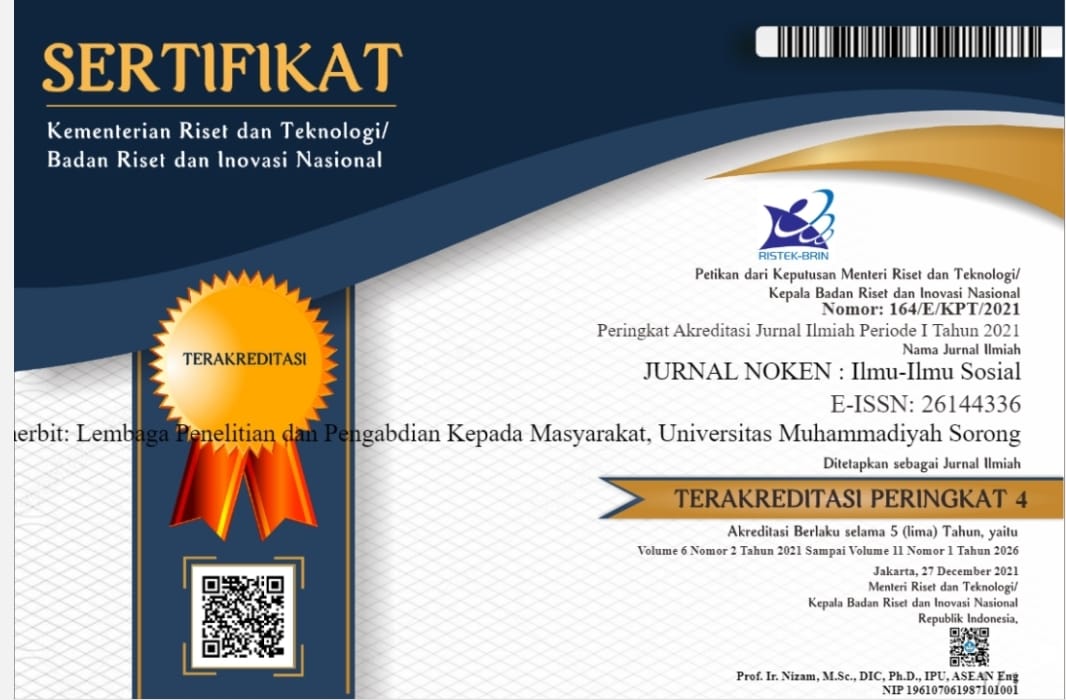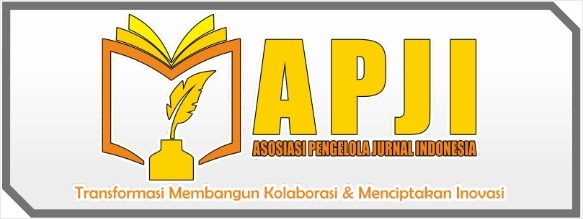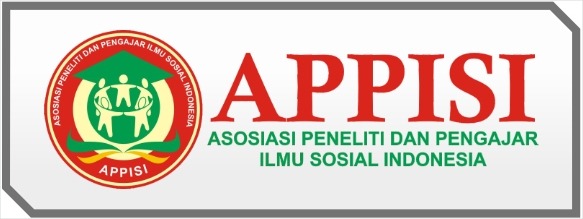Systematic Review: Analisis Hubungan Pertumbuhan Ekonomi dan Tingkat Kemiskinan di Kabupaten Buton
DOI:
https://doi.org/10.33506/jn.v10i2.3806Keywords:
Pertumbuhan Ekonomi, Kemiskinan, Systematic Literature Review, Kabupaten Buton, Kebijakan InklusifAbstract
This study aims to analyze the relationship between economic growth and poverty levels in Buton Regency using a systematic literature review approach based on PRISMA guidelines. Although economic growth is often assumed to reduce poverty through increased employment and income, the results of this study show that in Buton Regency, significant economic growth does not always correspond with a decrease in poverty levels. This study identifies several causes of poverty, including educational factors, unemployment, population size, and inequality. Meta-analysis found three patterns of the relationship between economic growth and poverty: economic growth that reduces poverty, increases poverty, or has no significant impact on poverty. These findings indicate that economic growth in Buton Regency needs to be balanced with more inclusive policies focusing on poverty reduction, especially in the most vulnerable sectors. This study suggests the importance of implementing more equitable and fair development strategies to reduce economic and social disparities in Buton Regency.
References
Alam, M. Q., & Alam, M. S. (2021). Financial Development, Economic Growth and Poverty Reduction in India: An Empirical Evidence. Etikonomi, 20(1), 13–22. https://doi.org/10.15408/etk.v20i1.18417
Ali, D. D. I., & Saleh, S. E. (2020). The Effect Of Fiscal Decentralization And Economic Growth On Poverty In Gorontalo Province. Jambura Equilibrium Journal, 1(2). https://doi.org/10.37479/jej.v1i2.4381
Alma’ruf, Z. (2023). The Effect of Economic Growth, Population, Minimum Wage, and HDI on Poverty. Efficient: Indonesian Journal of Development Economics, 6(1), 107–117. https://doi.org/10.15294/efficient.v6i1.55225
Anakusara, R., Jamal, A., Seftarita, C., & Maipita, I. (2019). Economic Growth and Employment in Agricultural Sector on Poverty in Aceh Province. Trikonomika, 18(1), 1. https://doi.org/10.23969/trikonomika.v18i1.1513
Andika Saputra, H., Irvan Ginting, D., & Albar Tanjung, A. (2023). The effect of unemployment and economic growth on poverty in West Sumatra Province. Ijafibs, 11(3), 430–440. www.ijafibs.pelnus.ac.id
Asawidya, P. A. (2015). the Effects of Economic Growth, Education, and Government Expenditure on Poverty in Indonesia. Jurnal Ilmiah Mahasiswa FEB Universitas Brawijaya, 7, 1–16. http://scholar.unand.ac.id/35384/
Badu, R. R., Canon, S., & Akib, F. H. Y. (2020). The Impact of Economic Growth and Unemployment Rate on Poverty in Sulawesi. Jambura Equilibrium Journal, 2(1), 25–33. https://doi.org/10.37479/jej.v2i1.4499
Djannah, C., Paddu, A. H., & Anwar, A. I. (2023). Analysis of The Human Capital, Economic Growth, and Education Spending on Poverty in Gowa District. International Journal of Social Science, Education, Communication and Economics (SINOMICS JOURNAL), 2(3), 455–462. https://doi.org/10.54443/sj.v2i3.148
Ginting, A. M., & Rasbin, R. (2010). Pengaruh pertumbuhan ekonomi terhadap tingkat kemiskinan di Indonesia sebelum dan setelah krisis. Jurnal Ekonomi Dan Kebijakan Publik, 1(2), 279–312.
Herianto, Sarlin, Mardiiana, Andira Sari, R. G. (2024). Penentuan Sektor Unggulan Dan Struktur Pertumbuhan Ekonomi. 55–61.
Hidayat R, W. (2018). The Impact of Economic Growth on Income Disparity and Poverty. International Summit on Science Technology and Humanity, Iseth, 293–301.
Irawan, E. (2022). the Effect of Unemployment, Economic Growth and Human Development Index on Poverty Levels in Sumbawa Regency in 2012-2021. International Journal of Economics, Business and Accounting Research (IJEBAR), 6(2), 950. https://doi.org/10.29040/ijebar.v6i2.5455
Madania, S., & Mubarak, Z. (2023). Ecodemica. Jurnal Ecodemica: Jurnal Ekonomi, Manajemen, Dan Bisnis. Can Economic Growth, HDI, and Zis Contribute to Poverty Reduction In South Kalimantan?, 7(1), 16–22.
Resmarani, N. M. N., & Sishadiyati. (2023). The Effect of Economic Growth, Unemployment Rate and Human Development Index on Poverty Rate in North Jakarta. Jurnal Ekonomi Dan Bisnis Digital, 2(3), 871–880. https://doi.org/10.55927/ministal.v2i3.5831
Rusmita, S., & Islahiyah, D. (2022). the Role of Crime in Moderating the Impact of Economic Growth and Poverty: the Case of West Kalimantan. Jurnal Ekonomi Bisnis Dan Kewirausahaan (JEBIK) , 11(1), 84–99. http://dx.doi.org/10.26418/jebik.v11i1.52939
Sari, M. A., & Rofiuddin, M. (2022). majority provinces in Indonesia. 4(2), 76–86.
Silalahi, A. S., Harningtias, A., & Rengganis, M. (2023). Analysis of the Influence of Economic Growth on Poverty Levels in Medan City. Indonesian Journal of Advanced Research, 2(7), 857–868. https://doi.org/10.55927/ijar.v2i7.4541
Siswanto, S. (2010). Systematic review sebagai metode penelitian untuk mensintesis hasil-hasil penelitian (sebuah pengantar). Buletin Penelitian Sistem Kesehatan, 13(4), 21312.
Soleh, A., & Suwarni, S. (2023). Inclusiveness of economic growth in Indonesia: the poverty approach. JPPI (Jurnal Penelitian Pendidikan Indonesia), 9(2), 804. https://doi.org/10.29210/020231783
Sumargo, B., & Haida, R. N. (2020). Linkages between Economic Growth, Poverty and Environmental Quality in Indonesia. Jurnal Ekonomi Pembangunan: Kajian Masalah Ekonomi Dan Pembangunan, 21(1), 47–59. https://doi.org/10.23917/jep.v21i1.8262
Triani, D., & Sitorus, A. (2023). The Influence of Human Development Index, Gini Ratio, Life Expectancy, and Economic Growth on Poverty in Aceh Province 2018-2022. Proceedings of Bengkulu International Conference on Economics, Management, Business, and Accounting, 1(1), 64–71.
Widjaja, I., Deddy T. Tikson, & Rahmadanih. (2022). Association of Development Disparity, Economic Growth on Poverty in South Sulawesi Province. The Journal of Indonesia Sustainable Development Planning, 3(3), 246–255. https://doi.org/10.46456/jisdep.v3i3.213
Wolor, C. W., Nurkhin, A., & Citriadin, Y. (2021). ories , Systematic Literature RevieLeadership Style for Millennial Generation , Five Leadership Theories , Leadership Style for Millennial Generation , Five Leadership Thew. September. https://doi.org/10.47750/QAS/22.184.13
Downloads
Published
How to Cite
Issue
Section
License
Copyright (c) 2024 Purnama Purnama, Herianto Herianto, Nurdin Nurdin, Darmin Hasirun

This work is licensed under a Creative Commons Attribution-ShareAlike 4.0 International License.










